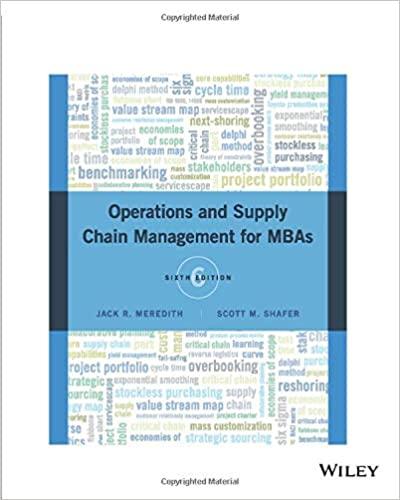Izmir National University (INU) was chartered in 2010 to facilitate Turkey s expected eventual entry into
Question:
Izmir National University (INU) was chartered in 2010 to facilitate Turkey ’ s expected eventual entry into the economy of Europe, via the EU. To foster growth and development in the European economy, engineering, science, and business were deemed to be the institution ’ s primary areas of intellectual endeavor. The university grew rapidly during its first three years. By 2015, the enrollment had reached just over 9300 students. However, with this rapid growth came a number of problems. For example, because the faculty had to be hired so quickly, there was little real organization, and curriculum seemed to be decided on the basis of which adviser a student happened to consult. The administrative offices were often reshuffled, with vague responsibilities and short tenures.
The faculty of the new Business School was typical of the confusion that gripped the entire university.
The 26 faculty members were mostly recent graduates of doctoral programs at major European and Turkish universities.
There were 21 Assistant Docents and Lecturers, 3 Docents, and 2 full Professors, spread fairly evenly over the four departments, each overseen by a Kürsü professor
(department head). In addition, funds were available to hire three additional faculty members, either assistant or regular Docents. The background of the newly recruited Dekan (administrative head, dean) of the Business School included five years of teaching at a primarily Muslim university in Turkey and two years of departmental administration at a large southern European university.
Upon arriving at the Business School, the Dekan asked the faculty to e‐mail their concerns to her so that she could begin to get a handle on the major issues confronting the school. Her office assistant selected the following comments as representative of the sentiments expressed:
• “Our student–teacher ratio is much higher than what it was at my former university. We need to fill those open slots as quickly as possible and ask the university to fund at least two more faculty positions.”
• “If we don ’ t get the quality of enrollments up in the MBA program, the graduate school will never approve our application for a doctoral program. We need the doctoral program to attract the best faculty, and we need the doctoral students to help cover our courses.”
• “Given that research is our primary mission, we need to fund more graduate research assistants.”
• “The travel budget isn ’ t sufficient to allow me to attend the meetings I ’ m interested in. How can we improve and maintain our visibility if we get funding for only one meeting per year?”
• “We need better staff support. Faculty members are required to submit their exams for copying five days before they are needed. However, doing this makes it difficult to test the students on the material covered in class right before the exam, since it ’ s difficult to know ahead of time exactly how much material we will cover.”
• “I think far too much emphasis is placed on research. We are here to teach.”
• “Being limited in our consulting is far too restrictive. In Europe, we were allowed one day a week. How are we supposed to stay current without consulting?”
• “We need a voice mail system. I never get my important messages.”
Questions
1. What do the comments by the faculty tell you about INU ’ s strategy?
2. What would you recommend the Dekan do regarding the Business School ’ s strategic planning process? What role would you recommend the Dekan play in this process?
3. Productivity is defined as the ratio of output (including both goods and services) to the input used to produce it.
How could the productivity of the Business School be measured? What would the effect be on productivity if the faculty all received a 10 percent raise but continued to teach the same number of classes and students?
Step by Step Answer:

Operations And Supply Chain Management For MBAs
ISBN: 9781119355328
6th Edition
Authors: Jack R. Meredith, Scott M. Shafer





